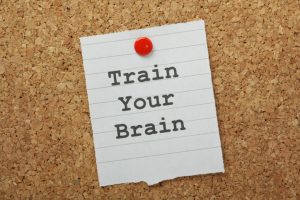
As part of the aging process, cognitive functions begin to decline, usually due to dysfunction in the prefrontal cortex. This can cause a decrease in the speed of cognitive processing, working memory, and executive functions, which can eventually lead to the loss of independence in these individuals. For this reason, researchers are becoming more concerned with how to maintain health and mobility in this population.
A new study focused on cognitive health tested whether a combination of cognitive and physical exercise was more beneficial than cognitive or physical testing alone. The researchers analyzed the data from 52 published studies that had examined the effects of either cognitive or physical exercise alone, or a combination of both, on cognitive health in the elderly population. Studies that examined animals were excluded. Search criteria included the keywords: cognitive training, physical training, combined cognitive and physical training, working memory, executive function, cognitive enhancement, endurance, aerobics, walking, everyday activities, elderly, and healthy older adults.
Cognitive and Physical Training Bring Different Benefits to Cognition
The results showed that both cognitive and physical training have an impact on cognitive health in older adults. One limitation the researchers encountered was that most of the studies focusing solely on physical training did not have long-term follow-up periods. This should be addressed in future studies focusing on the same topic.
Both cognitive and physical training has a positive effect on the structural and functional changes to the brain through aging, particularly affecting the frontal lobe and the white matter there, as well as on executive functions and memory. Only physical training was documented to have any beneficial effects on the hippocampus.
There were differences in the benefits provided by each type of training on cognition. “Cognitive training tends to improve problem-solving and fluid intelligence and reduce the cost of multitasking, whereas physical training tends to improve spatial memory, speed, and resistance to interference,” write the researchers.
All the studies that the researchers analyzed that tested combined training in comparison with single physical or cognitive training found benefits to using a combined approach. Combined cognitive and physical training brought the largest benefits to cognitive functioning, emotional status, and physical functioning than any combination of other training techniques. Over the long term, participants who underwent combined cognitive and physical training showed more independence in living and showed fewer signs of cognitive impairment than the other groups.
The researchers do acknowledge that there may be other reasons behind this finding, in favor of combined treatment. For example, the combined therapies took a longer period to observe than any of the single training, meaning that the benefits may be a result of an extended training time, as opposed to the actual combination of therapies.
Also read:
- Listening to your favorite song can improve brain health
- Alcohol And Memory Loss: How Does Alcohol Impact Brain Health And Memory Loss?